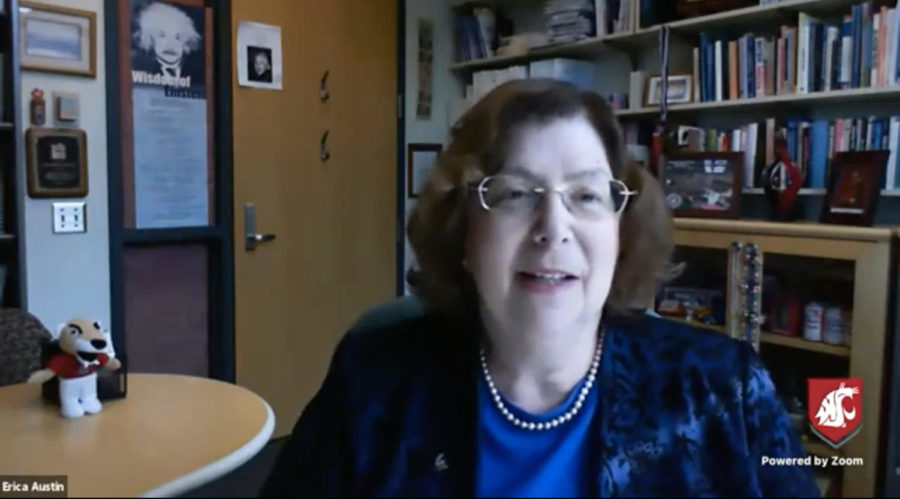WSU faculty member speaks on COVID-19 misinformation
Take information with a grain of salt; celebrities directly responsible for 20 percent of misinformation
Misinformation is difficult to navigate because there are often elements of truth embedded throughout the rest of the information, said Erica Austin, WSU professor and director of the Murrow Center for Media and Health Promotion Research.
April 1, 2021
According to one WSU faculty member, misinformation is a prominent factor of the pandemic and has ultimately determined many people’s decisions about receiving the COVID-19 vaccine.
The problem is much more prevalent than individuals think and misinformation is coming from unlikely sources, said Erica Austin, WSU professor and director of the Murrow Center for Media and Health Promotion Research, during the Inland Northwest Research Symposium Thursday.
Along with WSU professor Jessica Willoughby and assistant professor Shawn Domgaard, Austin formed a research group to study COVID-19 misinformation and inflation. The group has made several surprising discoveries, she said.
“Celebrities and public figures are responsible directly for 20 percent of the misinformation that was circulating, but they were motivating almost 70 percent of it,” she said.
Austin said misinformation is difficult to navigate because there are often elements of truth embedded throughout the rest of the information.
“Those elements of truth are packaged in things that are not true,” she said, “or they are somehow manipulated in a way so that they sort of suck you in.”
She also said a large percent of the public believes things about COVID-19 that are blatantly untrue. Austin said 25 percent of people participating in their research believe 5G networks can transmit COVID-19. Additionally, 28 percent believe hand dryers transmit the virus.
Misinformation and disinformation campaigns especially target communities of color, she said.
“It’s often to keep them from voting,” she said. “It’s often to keep them from becoming more powerful.”
Society needs to band together to stop misinformation targeting, especially when racial biases are involved, she said. Austin encouraged people to fact-check their information with the website TinEye.com.
“You can actually take a picture and see if it’s been doctored or if it’s been manipulated in any way,” she said.
Skepticism is also valuable. Take information with a grain of salt and be open to learning and gathering new information as well, she said.










